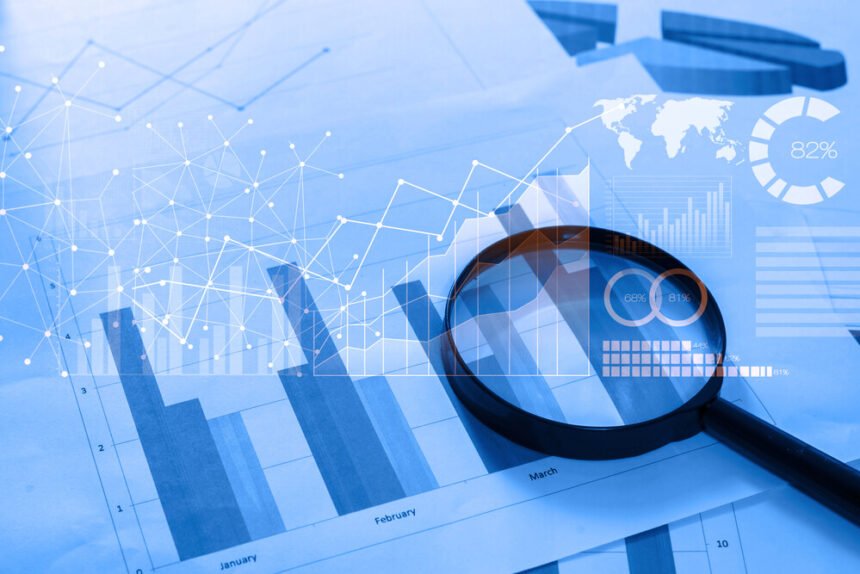We?re well past the point of realization that big data and advanced analytics solutions are valuable ? just about everyone knows this by now. In fact, there?s no escaping the increasing reliance on such technologies. Big data alone has become a modern staple of nearly every industry from retail to manufacturing, and for good reason. IDC predicts that if our digital universe or total data content were represented by tablets, then by 2020 they would stretch all the way to the moon over six times. That?s equal to 44 zettabytes of data, or 44 trillion gigabytes. There are many reasons why data is being generated so quickly ? doubling in size every two years. The birth of IoT and connected devices is just one source, while the need for more reliable real-time data is another. What?s more interesting, however, are the trends formed as a result of the newer digitally-reliant solutions. They specifically help shape the industry, altering how business analysts work with data. What will our digital future look like? How will we manage all this information? What skills should business analysts be focused on developing?
1. Specialization of Job Roles
For quite some time, the data analyst and scientist roles have been universal in nature. It?s not that specializations didn?t exist, they always have but companies are now starting to look for professionals with industry-specific experience. They want someone well versed explicitly in the kind of data they?re dealing with. Everything from financial services to manufacturing and logistics is being upgraded to rely on more digital services and as a result an influx of real-time data. There are plenty of opportunities, so choosing a specialization won?t hurt career choices, but doing the opposite can. It?s important to build a solid CV by working with businesses and teams that fit a specialization, so choose one.
2. Machine Learning Experience is a Must
By 2020, over 40 percent of all data science tasks will be automated. Machine learning technology and its growing capability is a huge driver of that automation. It?s for good reason too because automation and powerful machine learning tools can help extract insights that would otherwise be difficult to find even by skilled analysts. The entire process is also achieved much faster, boosting not just general efficiency but an organization?s reaction time to certain events, as well. Quantitative analysis, experimental analysis, data scaling, automation tools and, of course, general machine learning are all skills that modern data analysts should seek to hone. The more direct experience and talent an analyst has with automation technology, the more desirable they will be.
3. The Rise of Regulation
GDPR helped to spur the demand for prioritized data governance, and frankly, it happened so fast it left many companies scrambling to comply ? even still some are fumbling with the idea. But it?s not the only regulation or guideline that?s making waves. More recently, the California Consumer Privacy Act reared its head, which will go into effect in 2020. It won?t be the last either, not by a longshot. These regulations have a monumental impact on data processing and handling, consumer profiling and data security. Businesses are under intense pressure not only to comply with the requirements established but also to understand the impact on current and future operations. Data scientists and analysts who understand the ramifications can help organizations navigate the guidelines, and are skilled in both data privacy and security are in high demand. As more regulations come to be, that demand will continue to grow making it a viable specialization for current and future professionals.
4. Stay on the Bleeding Edge
Admittedly, it?s no small feat to stay up-to-date with anything that relates to modern technology. Solutions and tools are evolving at ridiculous rates, new opportunities are always being introduced, and a variety of trends take form year after year. But no matter how difficult it is, data analysts must continue to stay at the forefront of that growth. A good analyst may specialize but never puts their entire stock in one technology, platform or toolset. With databases, for example, choices may include NoSQL, HBase and MongoDB but its likely priorities may shift over time. Data processing is another skill vital to staying relevant in the analytics field. Professionals adept at this skill will be desirable by corporations, individuals and government offices alike. For frameworks and languages, there?s SAS, Python, R, Apache Hadoop and many others. The popular tools, on the other hand, include Power BI, ETL, IBM Db2, and Teradata. But more importantly, these are the examples today ? right now ? and they may shift or change over time. It?s up to analysts to stay current with any and all solutions available, and that means adopting a state of continuous improvement and growth as far as skills and knowledge are concerned.
5. Cloud Computing and Related Mechanics
Data scientists and software engineers are two different fields, but that doesn?t necessarily mean overlap doesn?t happen. It absolutely does and professionals must understand that achieving it is a vital part of staying relevant in today?s market. As the demand for more elastic and fluid infrastructure grows, analysts and scientists will need to understand how this relates to current operations and equipment. Being able to dynamically evaluate the load on a server, for instance, can go a long way when dealing with performance requirements and potential issues. It?s this concept of understanding the hardware and infrastructure at the helm that will elevate professionals to new heights. Big data, advanced analytics, machine learning, none of these technologies would exist without cloud computing and the resulting infrastructure. Until recently, the focus has always been on the tools and processes that would help achieve a greater understanding of data stores. As the technology becomes more capable and is adopted more openly, the need to understand the underpinning hardware has also become more important. Hence, the overlap between software and hardware related roles and the need for future professionals to understand the full scope of the systems at play.
6. Basic Business Intelligence Experience is a Must
Today?s data analyst is not locked in a tower and kept separate from the rest of the organization. In fact, it?s almost always the complete opposite, as scientist interact directly with teams and decision makers. This means that data professionals must be able to effectively communicate complex subjects to non-technical professionals. Communication happens to be a critical soft skill of business intelligence. But it?s not the only skill necessary to thrive. SQL programming skills, specific tool experience ? Tableau for example ? and problem-solving are just a handful of examples. The successful analysts of today and tomorrow must have a solid foundation in business intelligence too.
Growth is Always a Must, but the Right Growth is Key
Naturally, data analysts will continue to grow as they take on more projects and build experience in the industry. But fostering the right growth, into specific areas and skills, can help professionals achieve success, but also secure future opportunities in the field. More and more organizations deploy data analytics tools to influence their operations, future decisions and to understand consumer behavior. As time progresses, those tools have become more advanced alongside the technology itself, which has also become more capable. It?s up to analysts to not only understand the core systems and tools at play, but also the underpinning hardware. More importantly, professionals should seek to specialize in various industries to boost their value and skillset.







